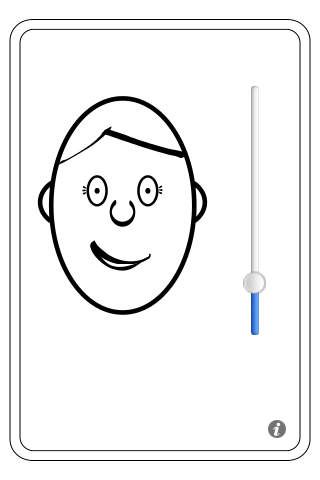
Emotional temperature is a tool to help those who sometimes struggle with negative feelings. It is a simple scale on which emotional intensity can be mapped.
This approach for thinking about anger was first used in teaching children with a limited vocabulary and challenging behaviour, but is now more widely used in homes and schools as well as therapeutic sessions. It has had results with a wide spectrum of toddlers, children and adults. And, despite being first developed for those with behaviour issues, it has proved valuable for those on the autistic spectrum, for pre-language age and ability and for teenagers and adults under stressful conditions.
Often a three stage use is recommended, though approaches must be tweaked to the individuals needs and abilities; and moving through these stages may take many months or even years.
Stage 1
What do I feel?
In response to a situation use the slider to map the intensity of their anger. Let them change it as they calm down or events unfold. Can they predict how they might feel next time?
Stage 2
How do others feel?
Can they map others feelings? Can they show out how others might feel at certain times and through certain experiences.
Stage 3
How do my feelings change others?
If they are angry, does this cause others to be angry? Do they get their own way? If they are calm, and the other person is calm, can they find a compromise? What would happen at different emotional temperatures.
Additional stage
Name the feeling
Introducing language like fuming or hacked off to indicate levels of anger that can be shared with a wider audience. For some, it may be helpful to introduce this at an earlier stage if they are ready.

